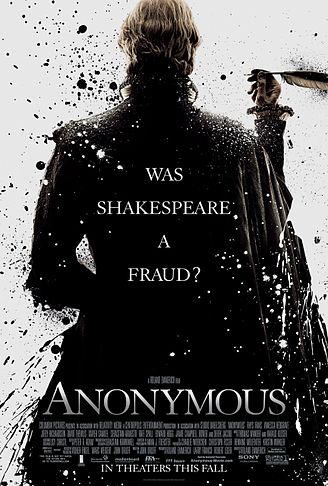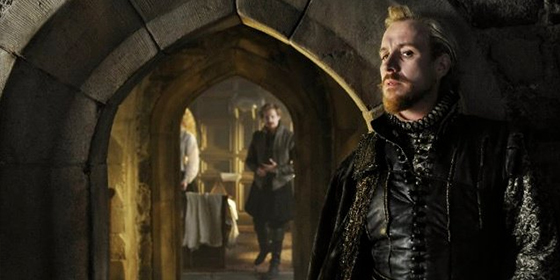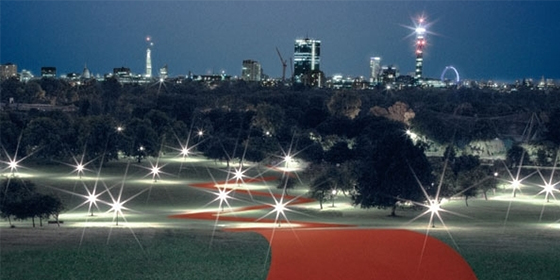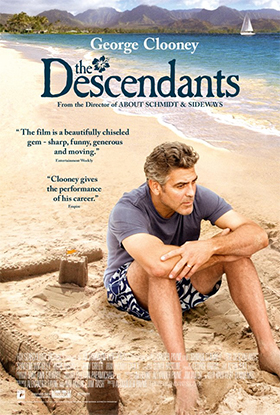The very idea of Roland Emmerich making a movie about the authorship of Shakespeare’s plays is enough to spark laughter, but the end result is a handsomely staged period piece.
For those not familiar with the Shakespeare authorship question, it goes a little something like this: how could a man who didn’t go to Oxford or Cambridge write some of the greatest works of literature of all time?
Throw in the fact that little is known about certain aspects of his life and you have a vacuum into which a well-oiled conspiracy can grow, the principal one being that the Earl of Oxford wrote the plays, which this film uses as a dramatic device.
For me, this has always been the literary equivalent of the people who think Paul McCartney died in 1967 or that the US government was somehow involved in 9/11.
But like those ideas it has an alarmingly large number of supporters, including Mark Twain, Sigmund Freud and even actors like Derek Jacobi and Mark Rylance, who both have small roles in this film.
Although not an expert on the period, I have yet to see any compelling evidence that proves Shakespeare didn’t write the works attributed to him and tend to trust scholars such as Stanley Wells, Stephen Greenblatt and Jonathan Bate, who have written and spoken at length about how the man from Stratford did actually write the famous plays and poems.
Which brings us to Roland Emmerich’s new film, which arrived in UK and US cinemas this weekend amidst a predictable blizzard of stories about the ‘controversy’ surrounding this film with several critics scoffing loudly at it.
In fact Sony Pictures seemed to have staged a deeply misguided marketing campaign, baiting those upset with the premise of the film.
As of this weekend it hasn’t worked as early tracking suggests younger audiences have more problem with the ambitious jigsaw puzzle script than they do with the authorship question.
This has meant that they have scaled back the release of the film and their hopes of award season success seem limited to the technical categories.
All of this is a shame because Anonymous is a highly accomplished film, even if the phony debate surrounding it leaves a lot to be desired.
 How did a project like this come about?
How did a project like this come about?
It goes back to the script John Orloff first wrote in the 1990s, which was originally shelved because of the success of Shakespeare in Love and later postponed in 2005 when Emmerich was going to direct it.
By this point he had earned enough money for the studio system with his apocalyptic blockbusters – Indpendence Day (1996), The Day After Tomorrow (2004) and 2012 (2009) – to attempt a pet project like this.
He’d always been an admirer of the script, which cleverly fuses Elizabethan literary and political conspiracies, whilst simultaneously reflecting very Shakespearean themes such as appearence and reality, the passage of time and the realities of power.
Opening with a modern day prologue (like Henry V) which takes the premise that Shakespeare was a fraud, it employs an ambitious flashback structure that goes between the succession crisis at the end of the Elizabethan era and the earlier events which led to the creation of plays which reflected both the politics of the time and would burn brightly for centuries to come.
Although it is hard to describe the narrative without venturing into major spoiler territory, but it revolves around Edward de Vere, 17th Earl of Oxford (Rhys Ifans) and the conceit that he not only wrote the plays of Shakespeare, but did so as part of an elaborate political conspiracy involving Elizabeth I (Vanessa Redgrave), playwright Ben Jonson (Sebastian Armesto) and Robert Devereux, 2nd Earl of Essex (Sebastian Reid).
It is vital to remember that like Oliver Stone’s JFK (1991) and Shakespeare’s play Richard III, this is a version of history, which plays around with history for dramatic effect and further discussion.
Forget the provocative device that the movie has been sold on and enjoy the way in which it weaves the subjects and themes of Shakespeare into an Elizabethan conspiracy thriller.
The way in which elements of Shakespeare’s plays are woven into the material is masterful – Henry V, A Midsummer Night’s Dream and Hamlet are just some of the plays that are referenced throughout, leading up to a climax which makes you want to watch the story all over again.
For those curious about Emmerich’s involvement, he manages to use his considerable technical skills as a big budget director to help shape a stunning depiction of Elizabethan England.
The production design, costumes and visual effects work wonders in creating a believable world – probably the best ever recreation of this period – even though the events which happen in it are wildly speculative.
It is this duality which makes Anonymous interesting – a film which uses the latest filmmaking technology is also an engaging depiction of the power of words in both politics and art.
There is also some stellar acting going on, most notably Rhys Ifans in the main role. After a wildly fluctuating career, he gives a performance of great depth and power, which is as welcome as it is surprising.
In supporting roles there is the neat trick of casting the mother and daughter team of Redgrave and Joely Richardson as Elizabeth I (both are excellent) and other reliable British thespians like David Thewlis in key roles.
The major flaw in terms of the characters is (ironically) the presentation of Shakespeare (Rafe Spall) as a total dolt, which is a failed attempt to position him in the traditional fool role – although any student of the plays knows it is often the fools who provide the insight and wisdom.
As for the failed joke in the otherwise excellent script about actors and playwrights, it didn’t prevent actors like Moliere and Pinter from becoming decent writers.
However, the presentation of the plays within the film is excellent – if a little inaccurate – and is probably the most advanced recreation of the Globe Theatre on film, showing how the audience were an important part of the experience (which also mirrors the political importance of the stage at the time).
The digital visuals by cinematographer Anna J. Foerster look incredible, with the darker candlelit interiors captured with amazing depth and clarity.
Shot on Arri’s (relatively) new Alexa camera, some scenes may be used as a benchmark test for what can be achieved using modern digital cameras.
For Emmerich this may be a glorious one-off before he goes back to the blockbuster realm – so good in fact, that future audiences might think he didn’t actually direct it.
> Official site
> Reviews and links about Anonymous from MUBi
> More on the Shakespeare Authorship Question at Wikipedia



